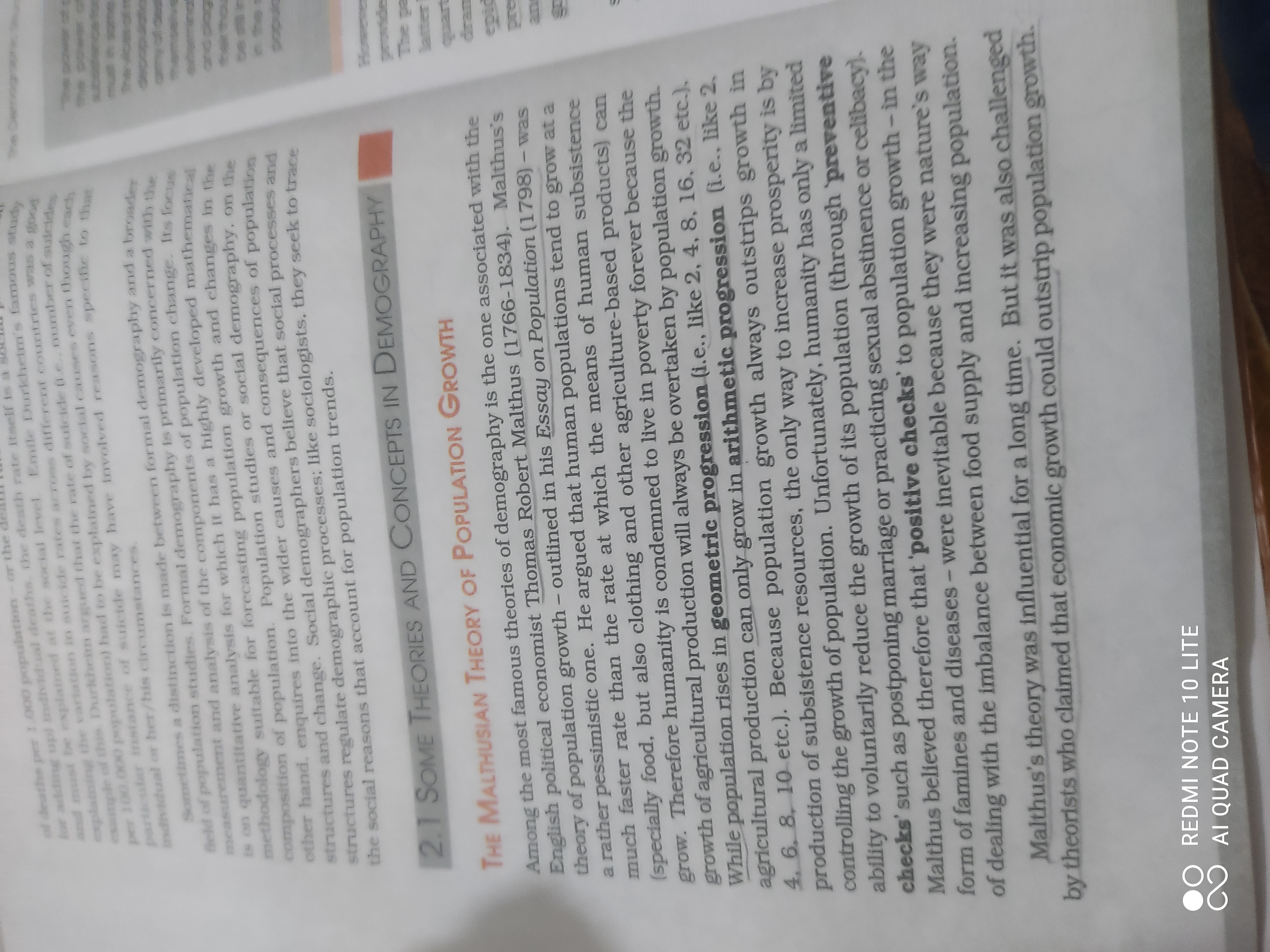What is the Malthusian theory of population growth?

Understand the Problem
The question seeks to explain the Malthusian theory of population growth, particularly how population growth is limited by agricultural production and the progression rates of each.
Answer
Population grows exponentially; food grows arithmetically, causing overpopulation crises.
The Malthusian theory of population growth suggests that human populations grow exponentially, while food production grows arithmetically. This disparity leads to overpopulation crises where resources become insufficient, resulting in famine, disease, and war as natural checks on population growth.
Answer for screen readers
The Malthusian theory of population growth suggests that human populations grow exponentially, while food production grows arithmetically. This disparity leads to overpopulation crises where resources become insufficient, resulting in famine, disease, and war as natural checks on population growth.
More Information
Malthus' theory emphasized the potential for population size to outstrip food supply, highlighting the importance of sustainable resource management.
Tips
A common misunderstanding is thinking food supply can easily increase without limits. Real-world improvements in technology have challenged some of Malthus' assumptions.
Sources
- Malthusianism - Wikipedia - en.wikipedia.org
- The Malthusian Theory of Population - Economics Online - economicsonline.co.uk
AI-generated content may contain errors. Please verify critical information